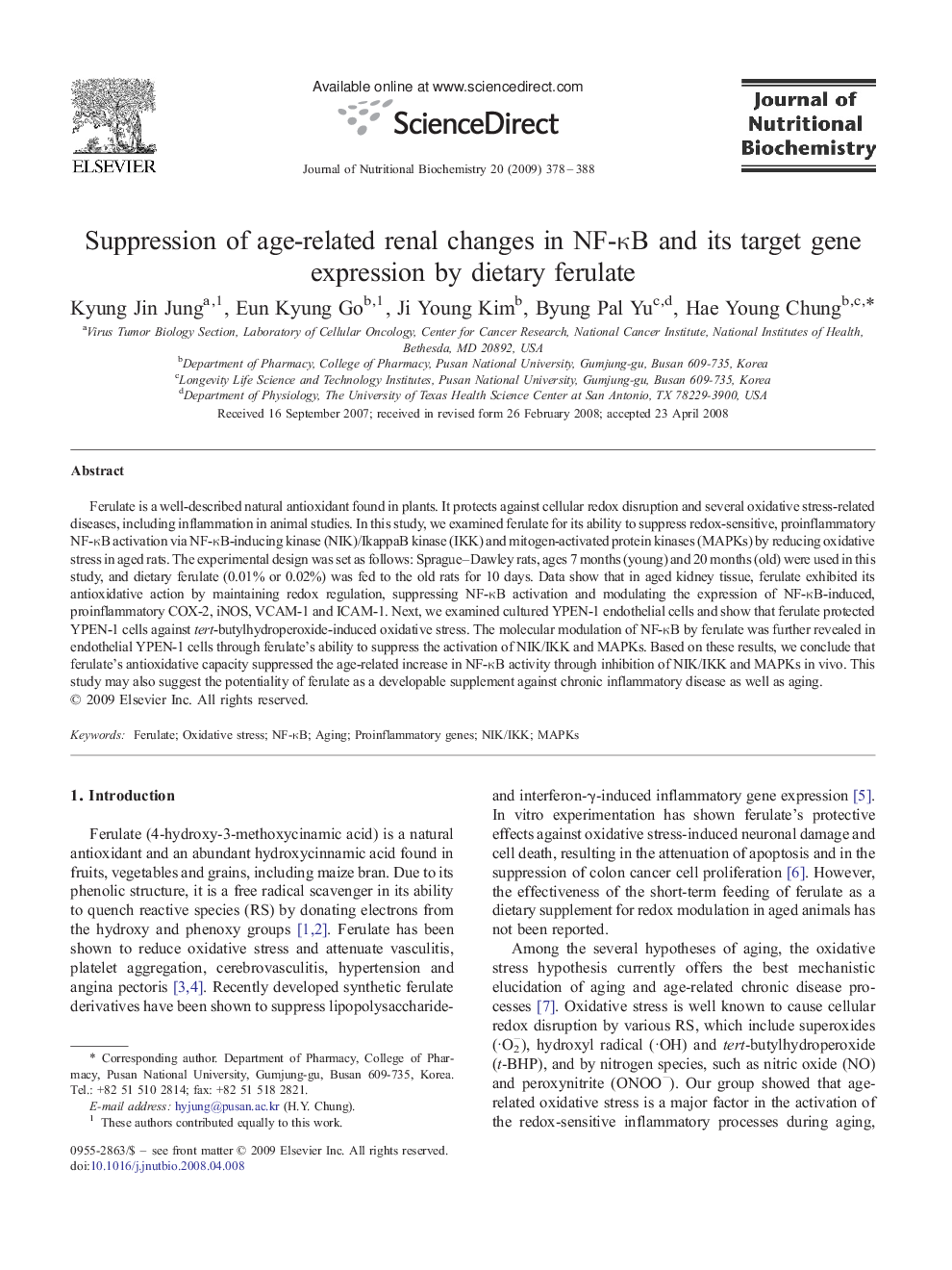| Article ID | Journal | Published Year | Pages | File Type |
|---|---|---|---|---|
| 1990415 | The Journal of Nutritional Biochemistry | 2009 | 11 Pages |
Ferulate is a well-described natural antioxidant found in plants. It protects against cellular redox disruption and several oxidative stress-related diseases, including inflammation in animal studies. In this study, we examined ferulate for its ability to suppress redox-sensitive, proinflammatory NF-κB activation via NF-κB-inducing kinase (NIK)/IkappaB kinase (IKK) and mitogen-activated protein kinases (MAPKs) by reducing oxidative stress in aged rats. The experimental design was set as follows: Sprague–Dawley rats, ages 7 months (young) and 20 months (old) were used in this study, and dietary ferulate (0.01% or 0.02%) was fed to the old rats for 10 days. Data show that in aged kidney tissue, ferulate exhibited its antioxidative action by maintaining redox regulation, suppressing NF-κB activation and modulating the expression of NF-κB-induced, proinflammatory COX-2, iNOS, VCAM-1 and ICAM-1. Next, we examined cultured YPEN-1 endothelial cells and show that ferulate protected YPEN-1 cells against tert-butylhydroperoxide-induced oxidative stress. The molecular modulation of NF-κB by ferulate was further revealed in endothelial YPEN-1 cells through ferulate's ability to suppress the activation of NIK/IKK and MAPKs. Based on these results, we conclude that ferulate's antioxidative capacity suppressed the age-related increase in NF-κB activity through inhibition of NIK/IKK and MAPKs in vivo. This study may also suggest the potentiality of ferulate as a developable supplement against chronic inflammatory disease as well as aging.
